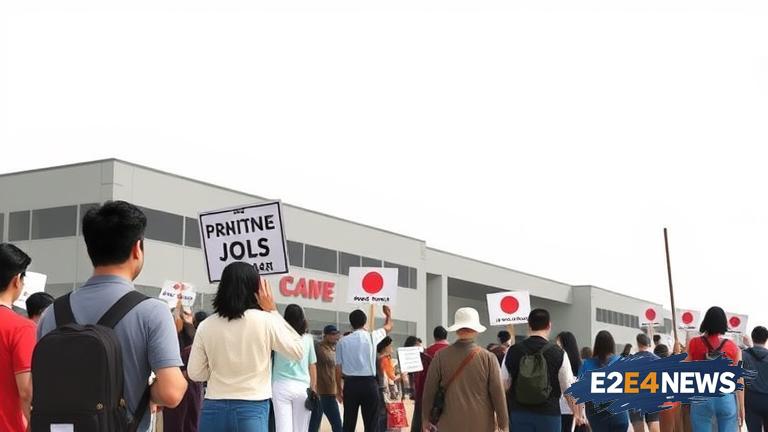A recent proposal to reopen the Dublin prison in California as an Immigration and Customs Enforcement (ICE) detention center has sparked widespread outrage among Japanese Americans and their allies. The prison, which was previously used as a federal correctional facility, has a dark history of being used as an internment camp for Japanese Americans during World War II. The proposal has been met with fierce resistance from the Japanese American community, who argue that the site’s history makes it an inappropriate location for an ICE detention center. Community leaders and activists have come together to protest the proposal, citing concerns about the potential for human rights abuses and the perpetuation of a painful and traumatic chapter in American history. The Japanese American community has a long and complex history with the US government, having been subjected to forced relocation and internment during World War II. The trauma and injustice of this period have had lasting impacts on the community, and the proposal to reopen the Dublin prison as an ICE detention center has reopened old wounds. Many argue that the use of the prison as an ICE detention center would be a stark reminder of the country’s history of racism and xenophobia. The proposal has also raised concerns about the treatment of immigrants and asylum seekers in ICE detention centers, which have been plagued by allegations of abuse, neglect, and poor living conditions. Japanese Americans and their allies are calling on the government to reject the proposal and instead work towards creating a more just and humane immigration system. The protest against the proposal is not just about preserving the history of the site, but also about standing in solidarity with immigrant and refugee communities who are disproportionately affected by ICE policies. The Japanese American community is drawing on their own experiences of marginalization and exclusion to advocate for the rights and dignity of other communities. The proposal has sparked a national conversation about the use of former internment camps as ICE detention centers, with many arguing that it is a morally reprehensible and historically tone-deaf decision. As the debate continues, Japanese Americans and their allies remain committed to fighting against the proposal and advocating for a more just and equitable immigration system. The community is also calling for greater awareness and education about the history of Japanese American internment, and the ongoing struggles of immigrant and refugee communities. By coming together to protest the proposal, Japanese Americans and their allies are sending a powerful message about the importance of preserving history, protecting human rights, and promoting social justice. The fight against the proposal is a testament to the enduring power of community activism and the importance of standing in solidarity with marginalized communities.
